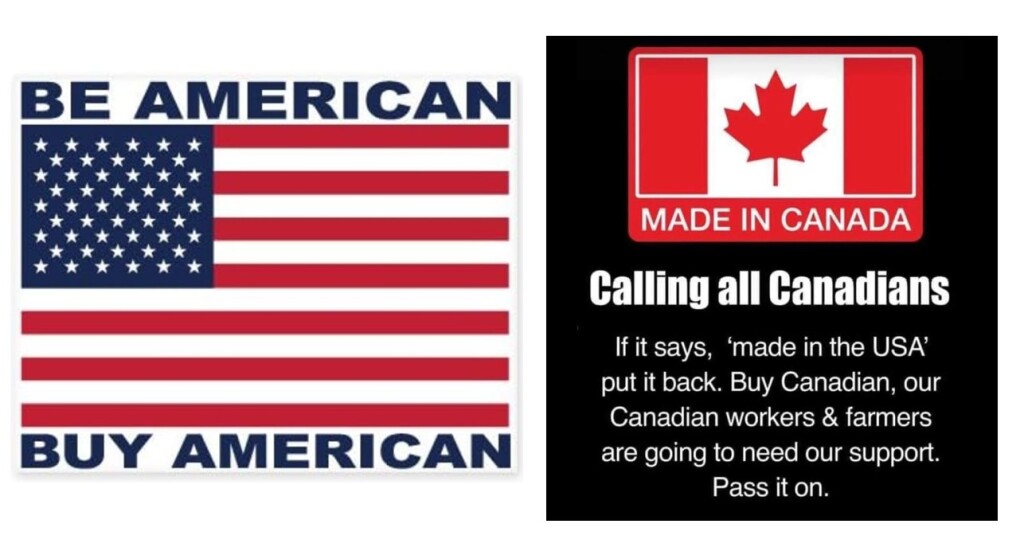First, a healthy way to think about trade:
Canada produces more and better maple syrup and high quality copper than the USA does. Yet the USA’s California wines are better than Canadian wines and the USA produces more hickory lumber than Canada does. So, Americans get more of their maple syrup and copper from Canada and Canadians get more of their wine and hickory wood from the USA. Everyone’s better off.
Second, the path to unhealth.
An American politician gets his dander up and imposes tariffs: ‘We’re gonna tax or restrict those dang Canadian imports!’ Consequently, Americans will now either pay more for their Canadian syrup and copper or they will consume instead the inferior American versions. They re worse off.
Third, the Canadians will join in.
‘We should get revenge on those bad Americans!’ So they will impose tit-for-tat tariffs on American wine and lumber. Consequently, Canadians will now either pay more for California wines and American hickory or consume instead the inferior Canadian version. Canadians are worse off.
The problem of mutually destructive tariffs is driven by two weaknesses, one cognitive and one moral.
The cognitive problem is that economic reasoning about free trade requires abstraction and several-step chains of reasoning. Few people are good at either; and fewer still are good at both.
The moral problem is the knee-jerk adversarial nationalism that many fall into. Too many American politicians see international relations as pissing contests between enemies, and too many Canadians have an inferiority-complex-driven anti-Americanism (especially Canadian intellectuals are prone to this).
Both “Buy American!” and “Buy Canadian” are slogans for the self-destructive.
Instead, the healthy trade policy should be this:

Buy from those who produce the best quality at the best price, no matter where in the world they are. That principled policy is best for all consumers, and it honors the best producers everywhere.
In a world awash in cheap junk, you’re describing artisan goods—so to speak, by comparison.
Our homes are littered with cheap shit, made in the spirit of planned obsolescence and quick profits. You’re ignoring an entire world of problems with our current set up.
Each passing year of my entire adult life, I’ve found that the most basic goods are getting worse and worse. From hardware, to appliances—packaging! Packaging of all sorts has gotten absurd. Pay attention to the little things and the big things. It won’t do to simply lean into your base economic theory. There’s a world of problems in all of this. Your approach here is as simple and short-sighted as Trump’s. I wish your entire generation would go back to the drawing board and figure out how to be more like your parents. Seriously.